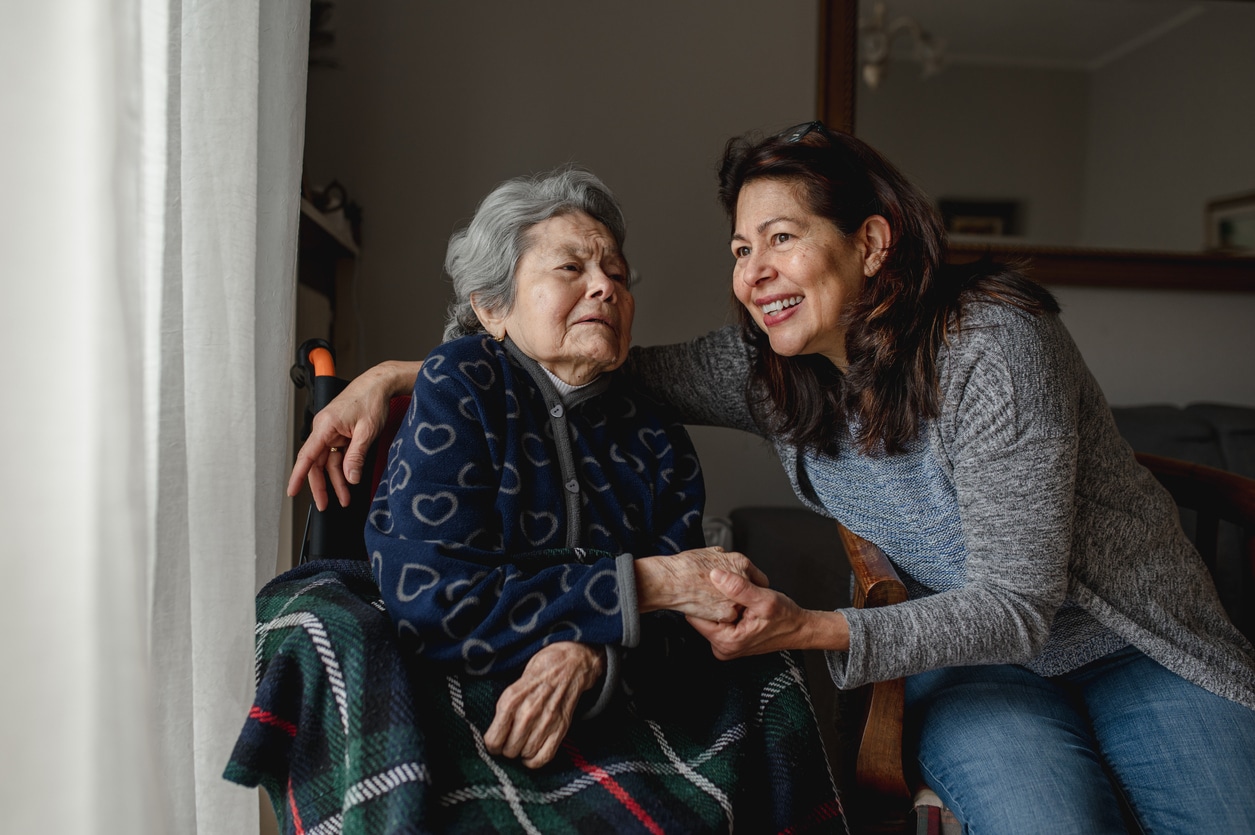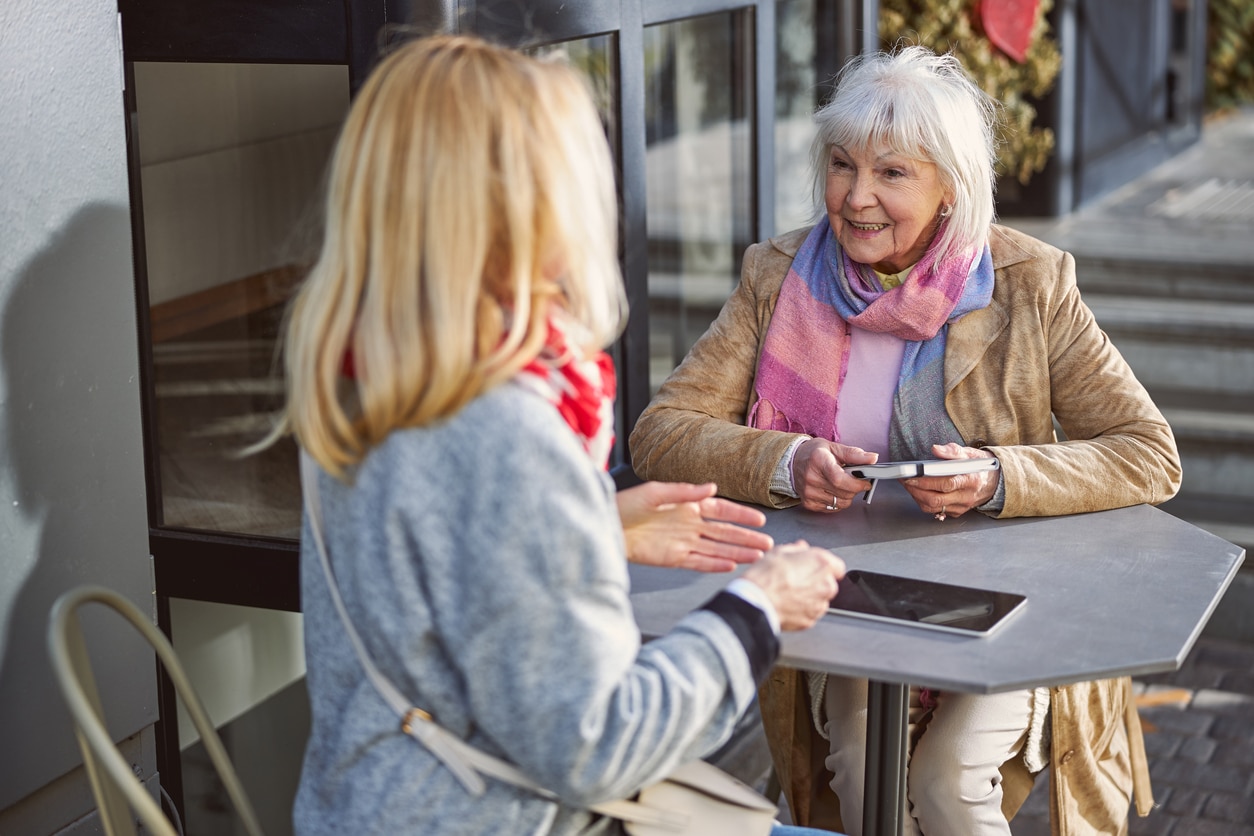Stress can be an inevitable result of taking care of an elderly loved one. The reality is that caregiver burnout can set in if you bypass your own needs, but fortunately, many ways exist to keep you emotionally and physically strong.
One of the best steps for easing the stress of caregiving? Talk to other members of your family about your role. Your relatives may be able to provide caregiver support by encouraging you to feel more positive and better prepared to do your job.
Managing Stress
Managing stress when looking after an aging relative is not always easy — some 29 percent of family caregivers find this to be an ongoing challenge, according to the Centers for Disease Control and Prevention. If you share your concerns with family members — whether you call, text, email, or meet face-to-face — letting someone else know how you’re feeling can ease your worries and help you stave off caregiver burnout.
Some 61 percent of family caregivers told the CDC that seeking advice and talking with loved ones had helped them cope. This is a great first step to improving your mood and well-being, but there is more you can do.
Talking to other family members about your caregiving duties can create a dialogue in which you’re able to ask for help. For example, a relative who lives nearby may be able to drive your senior relative to his medical appointments, allowing you time to, say, clean the house or run errands.
Taking Care of Yourself
You could even take a much-deserved break. Make time for exercise — physical activity will improve your mood and give you more energy. The American Heart Association recommends exercising to avoid caregiver burnout, as it can ward off heart disease and depression and improve sleep so you’re ready to take on the next task.
If the family members you communicate with most frequently live too far away to help out in person, they may be able to assist you in other ways. One example: They could offer financial support to help you pay for medical devices, medication, and other expenses.
According to the CDC, in 2007 the average family caregiver spent about $5,530 out-of-pocket and also had to cut back on work hours or quit entirely in order to look after an elderly relative. Your family members can also help you research health care options, such as treatment facilities and doctors, or simply call to check up on you and your aging loved one.
Caring for an older adult can be made easier and more rewarding when you share it with others — and a happy, healthy caregiver is better able to look after her senior loved one with renewed energy.



